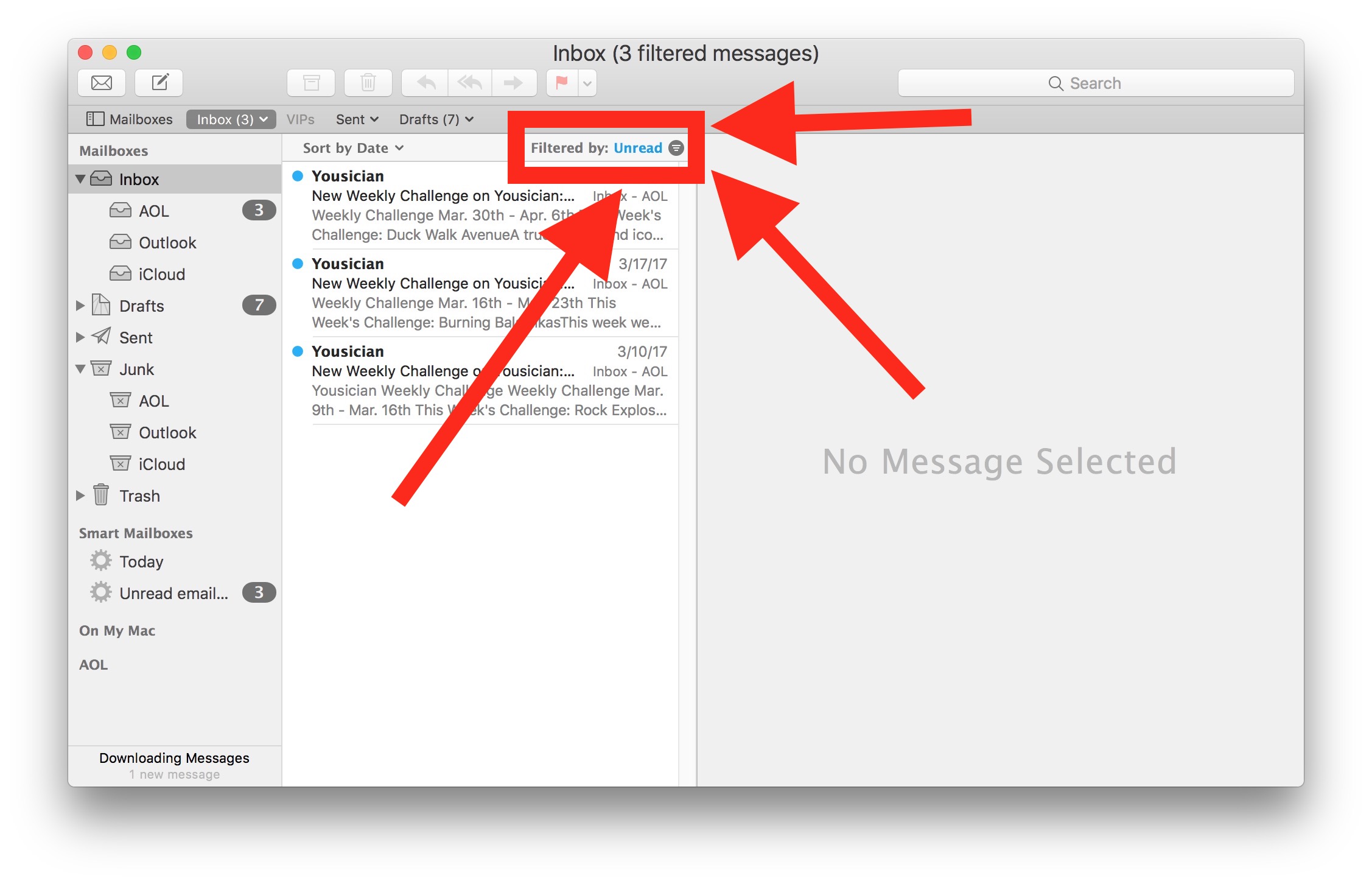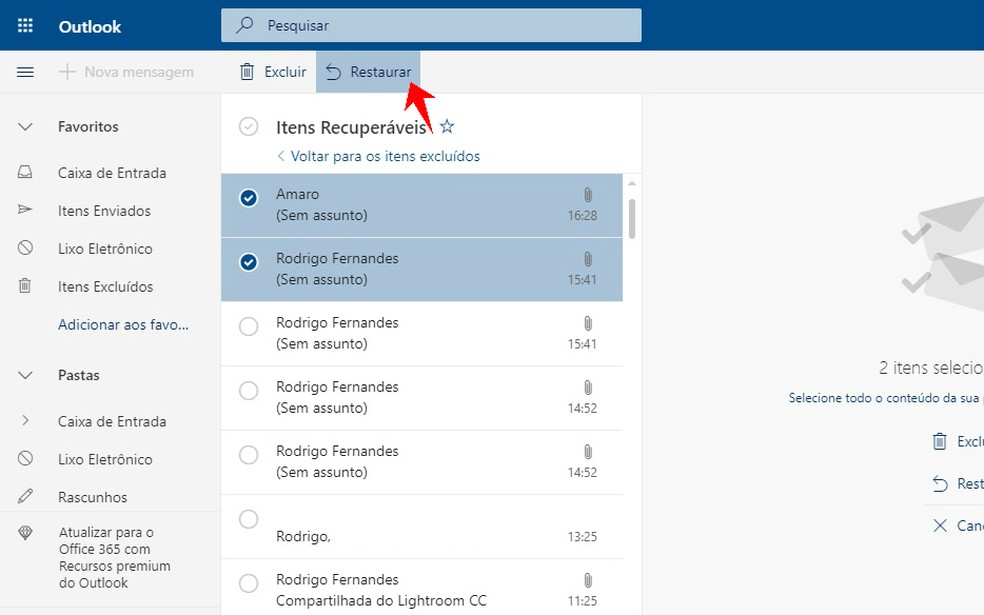

- #1 unread message in outlook for mac version 15.3 manual#
- #1 unread message in outlook for mac version 15.3 code#
Where FOLDER is a reference to the folder we are reading. The subroutine is called with the following arguments: CODE->(FOLDER, HEAD)
#1 unread message in outlook for mac version 15.3 code#
If you supply a CODE reference, that subroutine is called every time that the extraction mechanism wants to determine whether to parse the body or not. Messages where the size (in the Content-Length field) is not included in the header, like often the case for multiparts and nested messages, will not be extracted by default. If you supply an INTEGER to this option, bodies of those messages with a total size less than that number will be extracted from the folder only when necessary.

When the header of a message is read, you may want to postpone the reading of the body: header information is more often needed than the body data, so why parse it always together? The cost of delaying is not too high, and with some luck you may never need parsing the body. extract => INTEGER | CODE | METHOD | 'LAZY'|'ALWAYS'ĭefines when to parse (process) the content of the message. This will only work when access is granted for writing or appending to the folder.īe careful: you may create a different folder type than you expect unless you explicitly specify Mail::Box::Manager::open(type). create => BOOLEANĪutomatically create the folder when it does not exist yet. Messages which are coerced are always fully read, so this kind of information does not need to be kept here. Keep configuration information for messages which are coerced into the specified folder type, starting with a different folder type (or even no folder at all).
#1 unread message in outlook for mac version 15.3 manual#
Please check the applicable manual pages. The default depends on the mail-folder type, although the general default is Mail::Message::Body::Lines. Multiparts and nested messages are also outside your control.įor instance: $mgr->open('InBox', body_type => \&which_body) Even delayed message will require some real body type when they get parsed eventually. In case of a code reference, the header structure is passed as first argument to the routine.ĭo not return a delayed body-type (like ::Delayed), because that is determined by the extract option while the folder is opened.

Specify a CODE-reference which produces the body-type to be created, or a CLASS of the body which is used when the body is not a multipart or nested. For the body, however, there is a range of choices about type, which are all described in Mail::Message::Body. When messages are read from a folder-file, the headers will be stored in a head_type object. The bodies which are delayed: which will be read from file when it is needed, but not before. The permissions and owner of the file may get changed by this. For instance, if you specify "rw", and open the folder, only read permission on the folder-file is required.īe warned: writing a MBOX folder may create a new file to replace the old folder.

These MODE has no relation to the modes actually used to open the folder files within this module. Folders are opened for read-only (which means write-protected) by default! MODE can be 'r': read-only (default) 'a': append 'rw': read-write 'd': delete Multipart_type Mail::Message::Body::MultipartĪccess-rights to the folder. Head_delayed_type Mail::Message::Head::Delayed Option -Defined in -Defaultīody_delayed_type Mail::Message::Body::Delayed extract determines whether we want delay-loading. To control delay-loading of messages, as well the headers as the bodies, a set of *_type options are available. Some options pertain to Mail::Box, and others are added by sub-classes. A list of labeled %options for the mailbox can be supplied. ConstructorsĮxtends "Constructors" in Mail::Reporter. METHODSĮxtends "METHODS" in Mail::Reporter. The sort rules are those of the build-in cmp. (string comparison) folders are compared based on their name. My $folder = $mgr->open(folder => $ENV overload: the folder is used as if it is a reference to an array, it will show the messages, like messages() and message() would do.Įxample: use overloaded folder as array my $msg = $folder-> įoreach my $msg ($folder->messages). Mail::Box::Net SYNOPSIS use Mail::Box::Manager Mail::Box - manage a mailbox, a folder with messages INHERITANCE Mail::Box


 0 kommentar(er)
0 kommentar(er)
